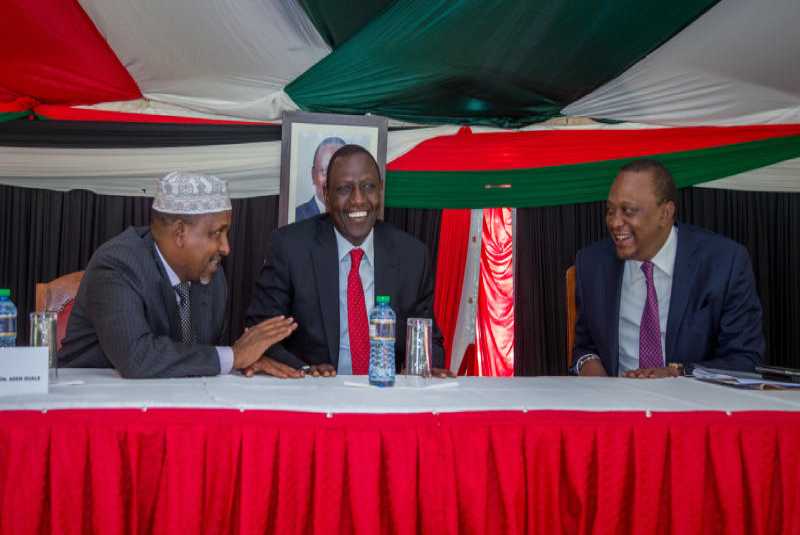×
The Standard e-Paper
Smart Minds Choose Us

President Uhuru Kenyatta shares a light moment with Deputy President William Ruto and National Assembly Majority Leader Hon. Aden Duale when he chaired a Jubilee Parliamentary Group meeting at State House, Nairobi, which agreed to support President Uhuru Kenyatta’s proposal to reduce VAT on petroleum products to 8 per cent. [Photo: Standard]
President Uhuru Kenyatta has cited a Sh67.5 billion funding gap for his decision to reject the Finance Bill, 2018, passed by the National Assembly.